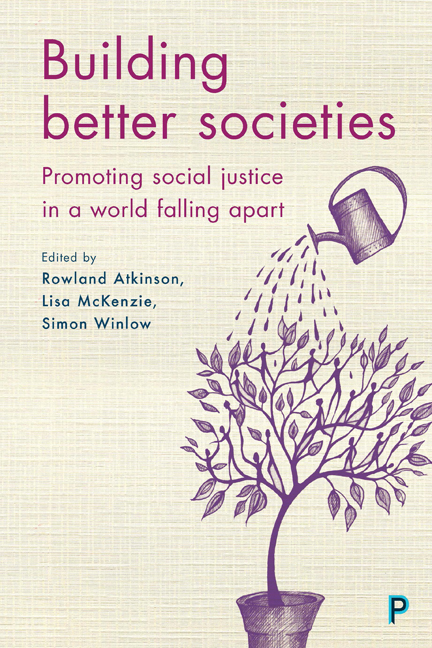Four - Valuing and strengthening community
Published online by Cambridge University Press: 05 April 2022
Summary
There is a growing and distinct group of people in the UK who are faring badly in this period of advanced capitalism. As inequality rises and the gap between the top and the bottom of society widens, their lives are becoming more precarious (Savage, 2015). The people struggling the most are working class, but unlike previous generations, they have little in the way of self- or state-organised stability, from trade unions, political parties or from identities connected to their employment. It is this group of people at the bottom of society who have been harmed the most by capitalist economics and who have traditionally relied on ‘the social’, whether in their employment or in their communities, to thrive, and we cannot ignore the connections between widening inequality and the de-valuing of the social.
The post-war consensus in 1945 put social goods at its centre education, social housing, state pensions, child benefit and the National Health Service (NHS). These social goods have always been important to working-class people, but over the last 30 years there has been a marked retreat from the post-war consensus, and a definite policy of ‘rolling back’ public-owned and public-run social services. The de-industrialisation and loss of manufacturing industries, and the privatisation of those industries that were once publicly owned, have devastated working-class communities, economically and also culturally, socially and symbolically. Housing policy has shifted over the last 30 years towards the homeowning democracy and away from a large social renting culture. Consequently, changing the way that the population view housing, from a ‘home’ to an ‘asset’, has serious implications for how communities organise and operate (Gough et al, 2006; Hodkinson et al, 2013). Simultaneously, removing state support for further education for all adults over the age of 25 and introducing and raising fees within higher education has ensured that even the myth of social mobility is now unbelievable (Bathmaker et al, 2013; Holmwood, 2014).
Because of these factors, the debate in the UK has moved from how we use the ‘social’ in tackling poverty and inequality to the usefulness of an individual, their productivity, their behaviour, their culture and their values (Skeggs, 2004, 2014; Welshman, 2006).
- Type
- Chapter
- Information
- Building Better SocietiesPromoting Social Justice in a World Falling Apart, pp. 39 - 52Publisher: Bristol University PressPrint publication year: 2017



